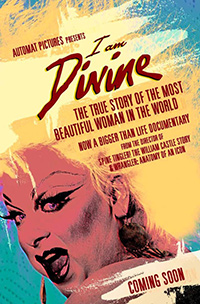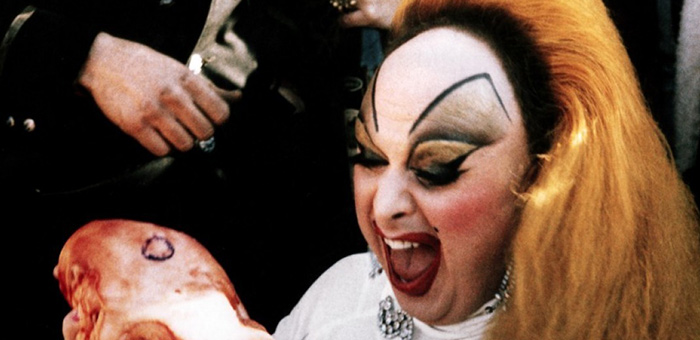Reviews
I Am Divine | Review
Divine Intervention: Schwarz Resurrects a Trailblazer for Loving Tribute
 As gay culture becomes more normalized and commodified into the fabric of the mainstream zeitgeist, the importance of remembering the career of the talented Divine seems paramount. Documentarian Jeffrey Schwarz manages to evoke the larger than life star with a comprehensive and lovingly made homage with I Am Divine, an effort to explore his life through a variety of interviews and archival footage. For those familiar with his output, there’s certainly nothing revelatory to be experienced here, and while it serves as a wonderful preface to Divine’s notable body of work, it’s equally enjoyable to revisit the infamous, intriguing, and incomparable career of a star whose life ended much too soon.
As gay culture becomes more normalized and commodified into the fabric of the mainstream zeitgeist, the importance of remembering the career of the talented Divine seems paramount. Documentarian Jeffrey Schwarz manages to evoke the larger than life star with a comprehensive and lovingly made homage with I Am Divine, an effort to explore his life through a variety of interviews and archival footage. For those familiar with his output, there’s certainly nothing revelatory to be experienced here, and while it serves as a wonderful preface to Divine’s notable body of work, it’s equally enjoyable to revisit the infamous, intriguing, and incomparable career of a star whose life ended much too soon.
Born Harris Glenn Milstead in 1945 Baltimore, Schwarz delves into Divine’s somewhat troubled youth and adolescence via extensive interviews with Divine’s mother and a female high school sweetheart. A quiet and sensitive young man, whose mother was told by doctors that he was an effeminate child, it was a friendship that developed with high school peer John Waters that really saw him start to come into his own. Experimenting with film, Waters coined the popular moniker on a whim as Divine tramped through several early shorts, which soon fostered an underground following and the attention of a San Francisco based psychedelic theater troupe known as The Cockettes, which screened all the shorts and provided a memorable venue for Divine to perform. But, as we all know, it was Waters’ 1972 film Pink Flamingos that took the world by storm, and so we follow through Divine’s history as she continued to work with Waters and then head to NYC to work on several hit shows Off Broadway. A music career and a more serious acting reputation would finally see Divine at his zenith with the hit Hairspray in 1988, which landed him a notable recurring guest spot on “Married With Children,” before he suddenly died the night before filming.
As far as documentaries go, I Am Divine is a standard parade of notable talking heads interspersed with clips and voiceovers of its subject matter. You can’t discuss Divine without also exploring his working relationship with John Waters, whose loving reverence and vibrant memories lends the film a substantial emotional core, as does a substantial amount of screen time for Divine’s mother, with whom he was estranged until not long before his death.
Dire beginnings as a bullied, overweight, and effeminate teen in 1950s and 60s Baltimore provide an intimate and complete composite of Divine’s life and personality and it seems hard to imagine a more comprehensive documentary, even though Schwarz keeps it quite sanitized, addressing Divine’s sexual proclivities but in a manner that makes the film feel designed for television. True, this gives I Am Divine an opportunity to be consumed by a wider audience as it focuses clearly on the star’s soft spoken nature and ultimate desire to be taken seriously, but this down plays the rather salacious and revolutionary effect the performer had as a cult icon whose glamorous persona challenged standardized notions in every category.
As Waters cites, Divine was a deity that stood for all outsiders, no matter of what ilk, to brazenly be oneself and reach for your dreams, not matter what anyone else said. Perhaps Divine would find the documentary a touching tribute, even if it is a bit too palatable.






























